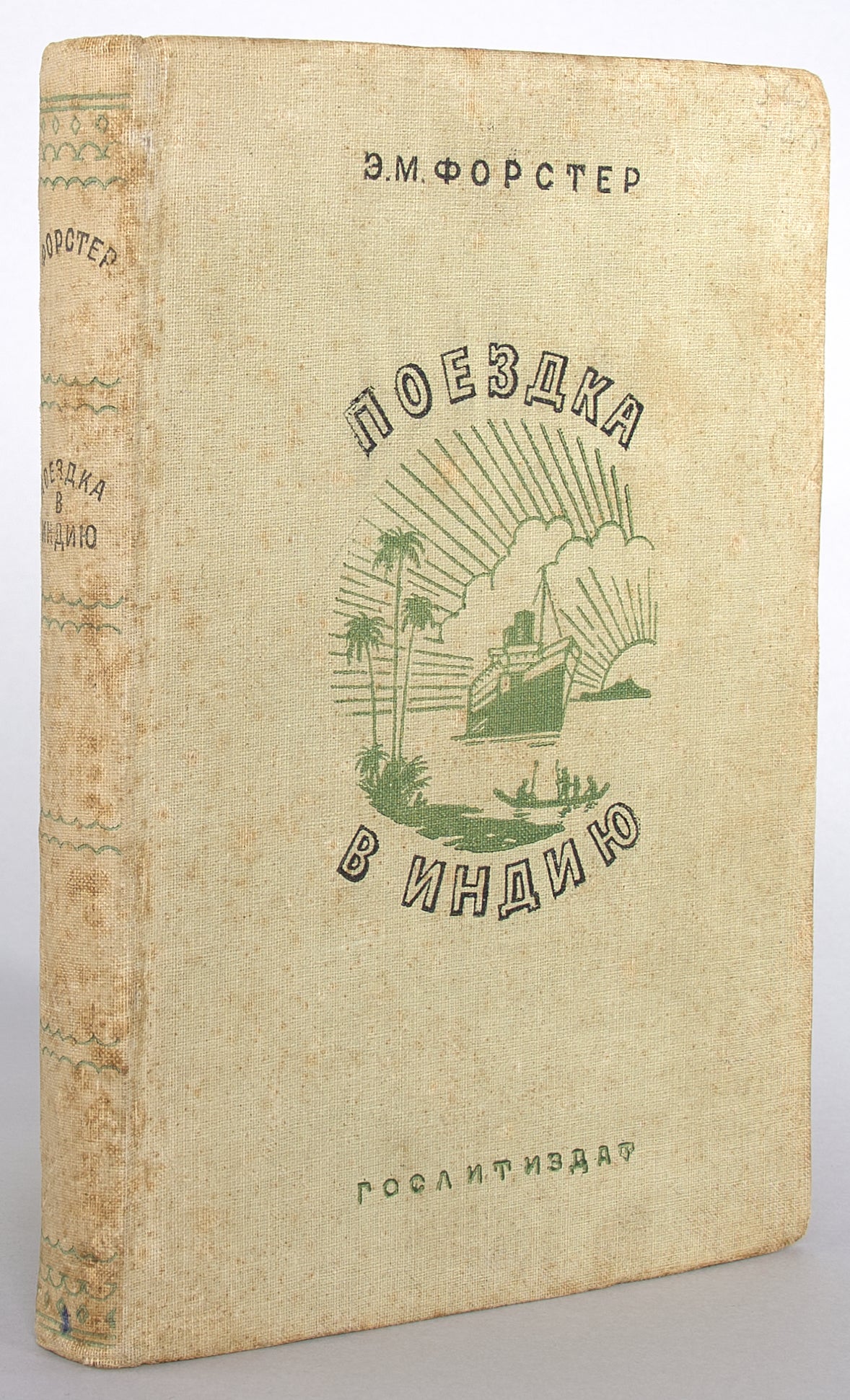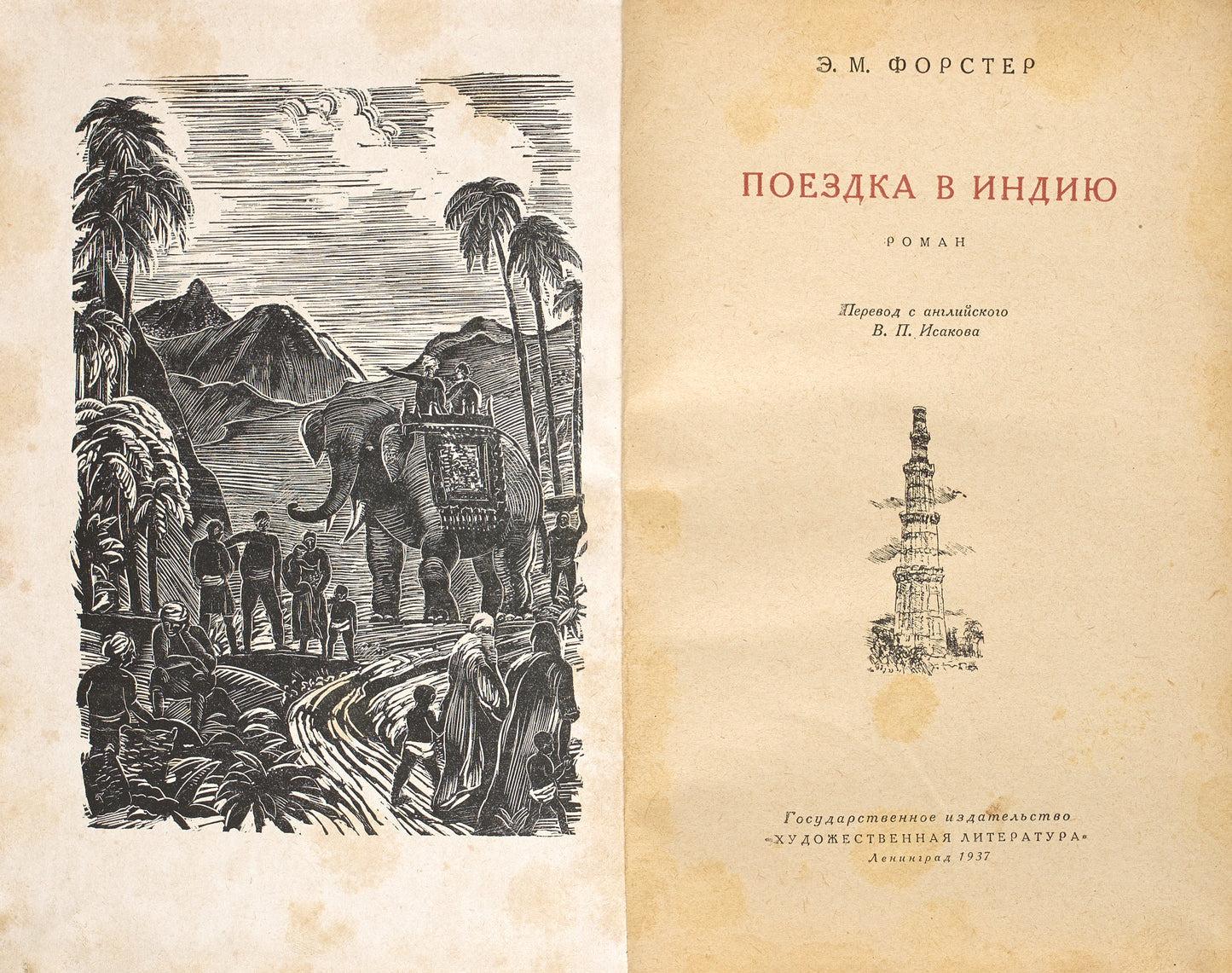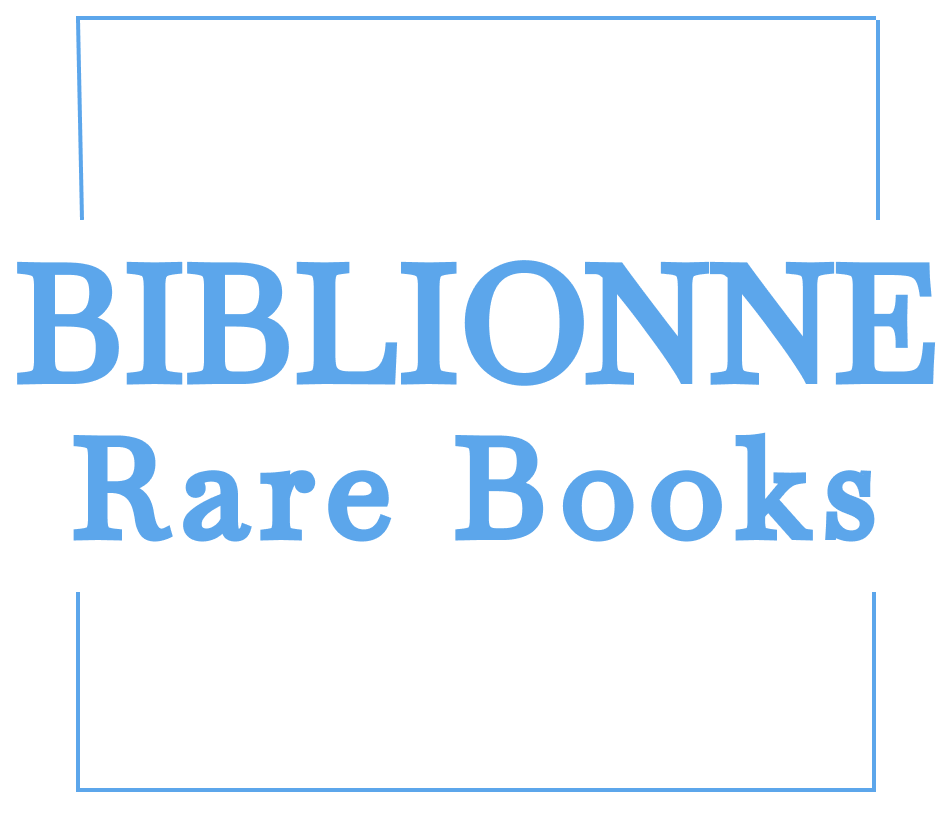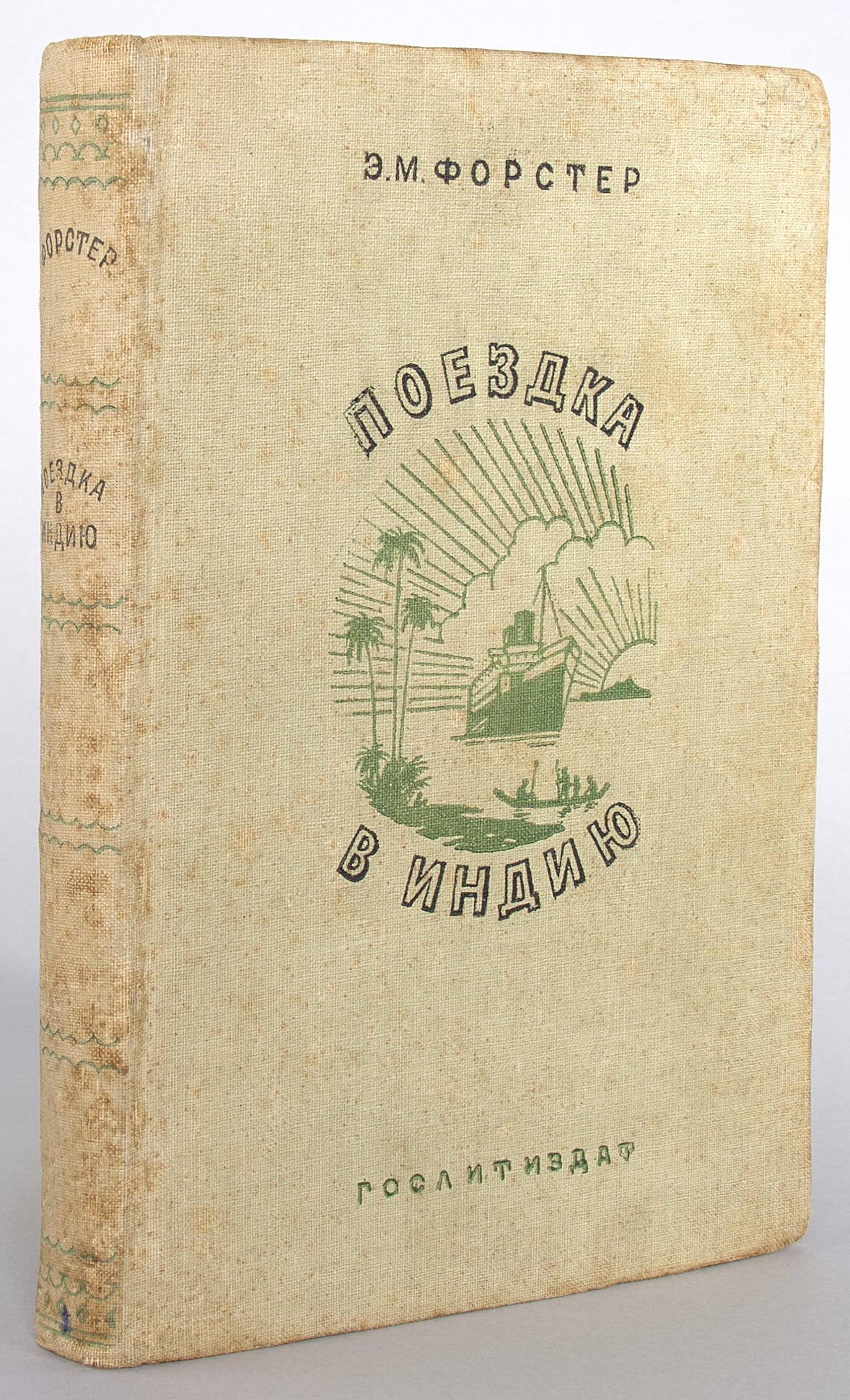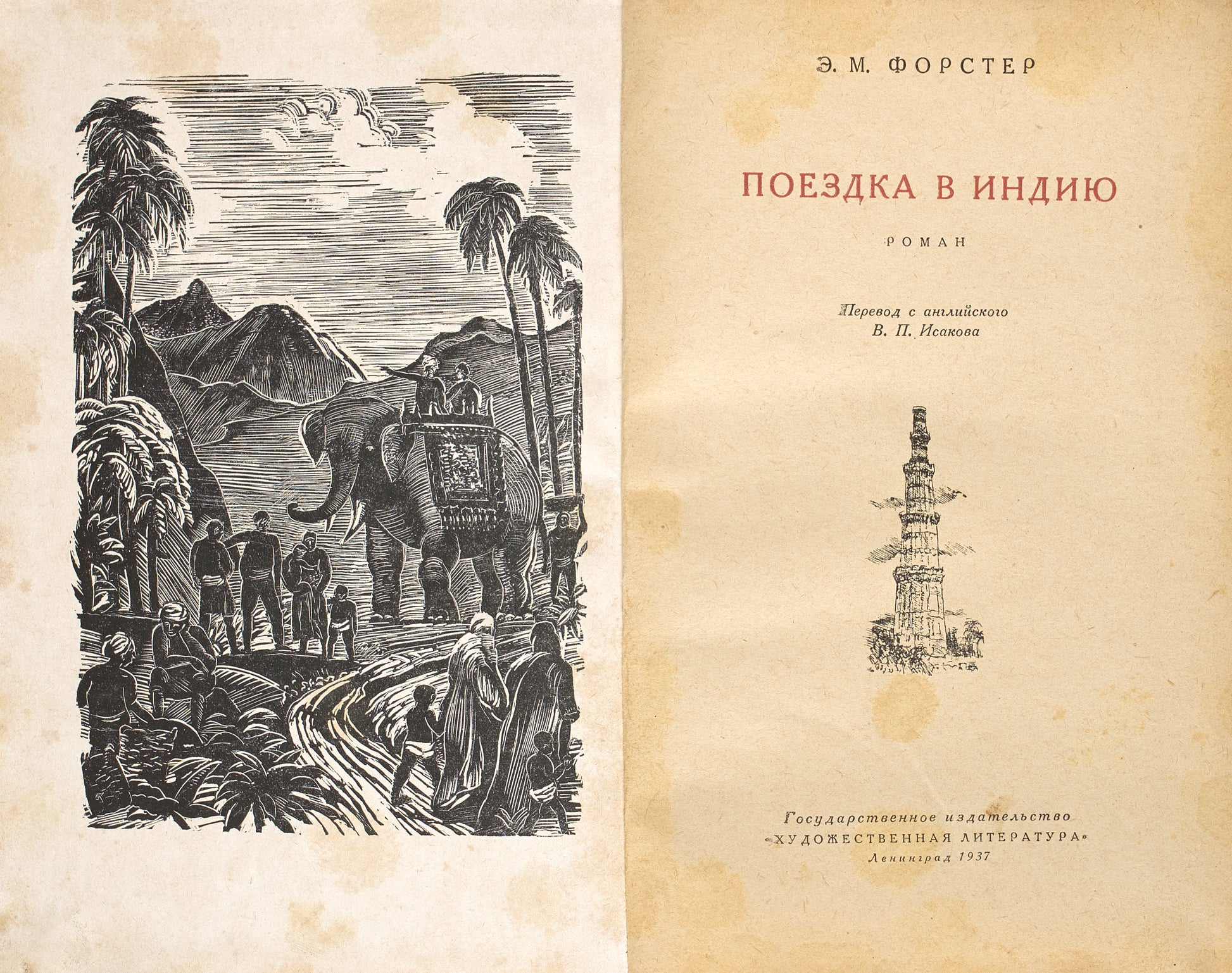Forster, E.M.
A Passage to India. First and only edition of this translation.
A Passage to India. First and only edition of this translation.
Couldn't load pickup availability
Forster, E.M. [A Passage to India]. Poezdka v Indiyu. Novel.
Translation by Vasiliy Isakov.
Illustrations by Adrian Kaplun.
Leningrad, Khudozhestvennaya literature, 1937.
8vo, frontispiece, 310, [2] pp., ill.
In publisher’s binding.
In good condition, foxing to cover, stains on pages.
Very rare. First and only edition of this translation. Second and last Forster’s lifetime book in Russian. One of 10 300 copies printed.
This last Forster’s novel was the only novel translated into Russian during the author’s lifetime.
The first Russian translation was issued by the privately owned publishing house in 1926 (translator Lidiya Nekrasova was arrested during the Great Purge and died in prison). This second translation appeared in the State publishing house in 1937 without a preface or comments. Almost nothing is known about the translator Vasiliy Isakov. He was an editor in the State publishing house and a book collector. He also translated the works by John Priestley and James Aldridge into Russian. Probably, he prepared his translations occasionally.
Forster’s novels were not widely known in Russia till now despite the fact that the third Russian translation of 'A Passage to India' was published in 2017 in Moscow.
In June 1935 Forster participated in the International Congress of Writers for the Defense of Culture in Paris, where he talked about communism as a hope for the future. Later, Forster was impressed by Andre Gide’s 'Back from the U.S.S.R.' (1937), where the author wrote about 'the denial of creative freedom' in the Soviet Union. (Rukun A. E.M. Forster as Critic, 2016). Forster was also disappointed with Lenin’s interest ‘in the creation and enjoyment of works of art’. In his review of 'Back from the U.S.S.R.', he hoped that 'free expression would come to be seen as an important facet of social life in Russia'.
Illustrations were prepared by graphic artist Adrian Kaplun (1887-1974). He studied at the School of Technical Drawing of Baron Alexander von Stieglitz. Kaplun also traveled widely across Russia and was in Leningrad during WWII.
We couldn’t trace any copy in the USA or European libraries via OCLC.
